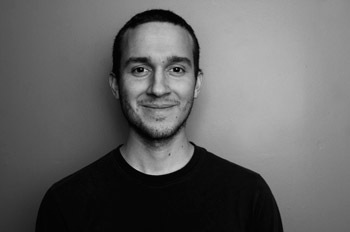Please welcome guest blogger, Scott Bartlett, with a post about the importance of editing.
It took me a couple novels to get used to the idea that writers also have to be editors. (In fact, they should be editors more frequently than they’re writers, but I’ll get to that a little later.)
I wrote my first novel in high school. It took me months to write, and I remember the moment I finished the final page very clearly.
It was an anticlimactic moment. I typed the last word and then scrolled through my completed manuscript. I considered what the characters had said and done and where the story had ended up.
“This stinks,” I said to myself. “This is utter bile, and must be read by no one.”
But I didn’t know what to do about that. I closed the Word document, and I went to eat supper. I’ve never returned to that book. I didn’t even give it a name.
A year or so later, eighteen days before a competition deadline, inspiration struck, and I decided to turn some short stories I’d written into a novel called Royal Flush. I abandoned my social life, writing at a rate of 10-15 pages a day. The writing came easier than anything else I’ve written, with the exception of one short story I wrote in grade eleven.
I finished it 6 AM the day of the deadline, and I sent it off. “Another novel complete,” I said to myself.
I didn’t win the competition. I didn’t make the shortlist, either. And when I received my manuscript back, I opened it, only to find it rife with errors. Spelling errors. Grammar errors. Continuity errors. Many of them right on page one.
This was not a professional effort—this was the work of an amateur!
I realized I still had a lot of work to do. At least 90% of the work, in fact, remained to be done.
Thankfully, I didn’t have to make this journey alone. I’ve been fortunate enough that many people have taken an interest in my writing, and I would estimate that over 100 people read Royal Flush during its various stages of pre-publication. That includes friends, family, coworkers, and users of Authonomy.com, all who provided valuable feedback. You might say I crowd-sourced a significant amount of the editing.
I always request honest feedback from anyone who reads my work, assuring them I can take it. Writing success requires that you first develop thick skin — rhino skin, I’ve heard it called. Since the only useful feedback is the honest kind, you need to invite it from everyone who reads your work.
I recommend cultivating a small group of people with whom you’re comfortable sending first drafts for proofreading and constructive criticism. Fellow writers make very good first readers, but non-writer friends can too, and even non-writer moms. (Despite the prevailing wisdom against getting feedback from your mother, mine has proven to be an honest critic of my work, and she’s always among the first to read it.)
In the end, I went through 10 drafts of Royal Flush. And guess what? Since releasing it, I’ve found some more mistakes.
But it’s not about eliminating a book’s every last flaw, because that’s impossible. No — proper editing is about drastically reducing the probability that your readers will get yanked unceremoniously from the world of your story by a glaring error that could easily have been fixed.
 About the Author: Scott Bartlett has been writing fiction since he was fifteen. His recently released novel, Royal Flush (aff link), is a recipient of the H. R. (Bill) Percy Prize.
About the Author: Scott Bartlett has been writing fiction since he was fifteen. His recently released novel, Royal Flush (aff link), is a recipient of the H. R. (Bill) Percy Prize.





Thanks very much for having me, Melissa, and hello Writing Forward readers! It’s a pleasure to be here. I’ve enjoyed chatting with you, and if any others would like to join the conversation, I’d love to speak with you as well.
My pleasure, Scott. Thank you for stopping by Writing Forward on your blog tour. I wish you the best of luck with Royal Flush!
“…proper editing is about drastically reducing the probability that your readers will get yanked unceremoniously from the world of your story by a glaring error that could easily have been fixed.”
I think I may have to steal this comment and share it with my writer’s group!
Why thank you, Mr. Atreides!
I can part with it for a certain quantity of the spice melange 😉
It is a great quote!
Feedback is so helpful. I find itreally difficult to see my story from a reader’s perspective as I’m so caught up in it, so having other people do that for me is great. Thanks for the post.
It was my pleasure! And I couldn’t agree more, about the importance of feedback. It’s so easy to miss things in your own work–especially when you’re reading it for the umpteenth time!
I’m glad you enjoyed my post.
Scott,
How long did it take you from finishing the first draft, to the end of the tenth revision?
Did you start another novel at any point of the process with your first one?
And agree with Paul most emphatically, the last thing I want is for my readers to get “yanked unceremoniously from the world” of my story! I’ve worked too hard for that.
One of my favorite places to be is lost in a story. I don’t even see the words if the author has done their job well. My goal is to create that type of experience for my audience.
Thanks for the post,
B
Hey Beckie, you’re more than welcome! Thank you for reading and commenting.
From the first draft to the end of the tenth revision, I do believe it took around five years. And yep, I started another book a couple years after that, which I’m currently revising–I’m almost finished the third draft. That’s turning out to be a multi-year project, as well.
Congratulations on finally getting “Royal Flush” edited and published, Scott! I love reading authors’ success stories. 🙂
If you don’t mind my asking, how exactly did you go about selecting an editor (or two, or three) for your book? I’m not ready to have my pending novel edited just yet, but it’s always good to think ahead…
Thanks a lot, Jill 🙂
The most important criterion for selecting an editor is that he or she is willing to read your stuff! Honestly, most people who read books make good editors. Book readers are the ones you’re writing for, after all!
I’ve also found fellow writers to be diligent editors. And my mother is a great editor–despite the prevailing wisdom against relying on your mom’s judgment of your stuff!
The ability to take feedback is definitely a hard thing to learn. Back in school, I belonged to a bunch of online critiquing sites. I’d get reviews that ranged from “OMG THIS IS GREAT” to “This isn’t worth the paper it’s printed on. And since this is online and not printed on any paper, it isn’t worth anything.” You need to learn to take it, and be grateful for the ones that actually help improve your writing.
I remember I took a class where a lot of the students never learned that. You could see they had a lot of potential, but they couldn’t handle the feedback. It was a shame.
I emphatically agree! I was lucky enough to have some great guidance pertaining to feedback early on in my writing. I’ve come to value honest feedback quite highly.
It’s unfortunate when writers with great potential can never move forward because they can’t handle the criticism. Critiques in school and in writing groups should not only help us improve our writing; they should toughen us up and prepare us for the realities of publication.
I totally want to congratulate you on getting your novel published!
Of course, every writer ‘knows’ that the entire process is hard work, but other’ stories help give us a perspective on how each writers’ life takes its own road filled with deadends, stray cats, and shade trees.
Thanks for sharing your story.
Thank you, for reading and commenting! You couldn’t be more right. We writers gotta support each other.
In school I took a writing class. It was hard to hear all the mistakes I made. But they were right. Those stories are better for it.
I’m always amazed at how other people can spot the weaknesses in our work that we are blind to.
Good job on taking that feedback, Melody! It’s easier said than done, and definitely hard to hear, as you say.